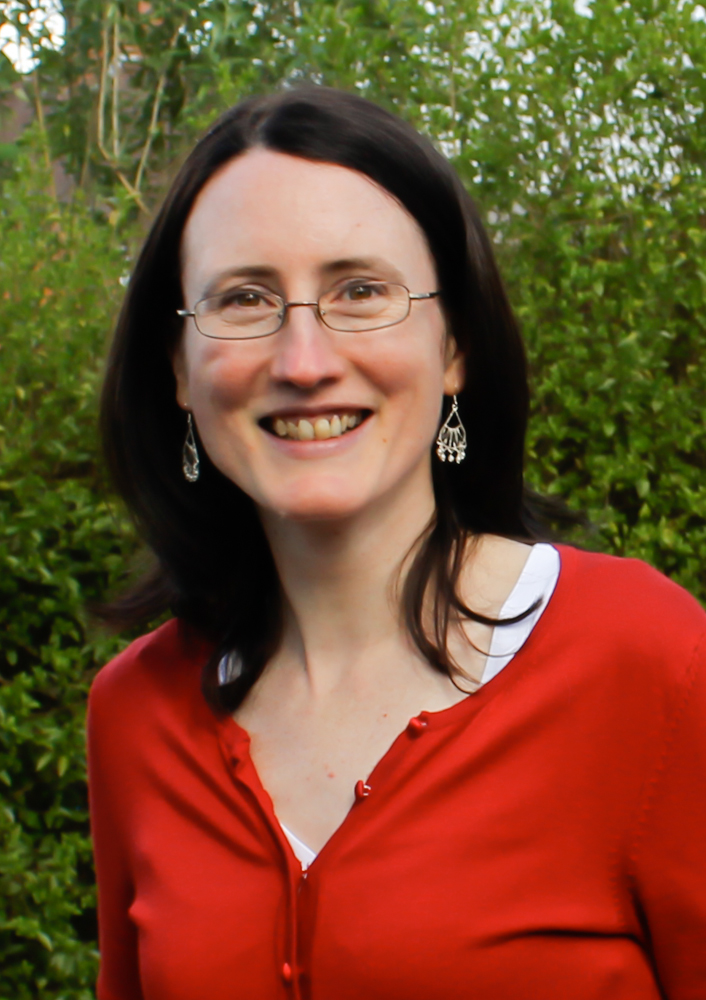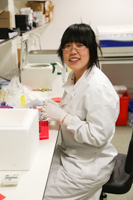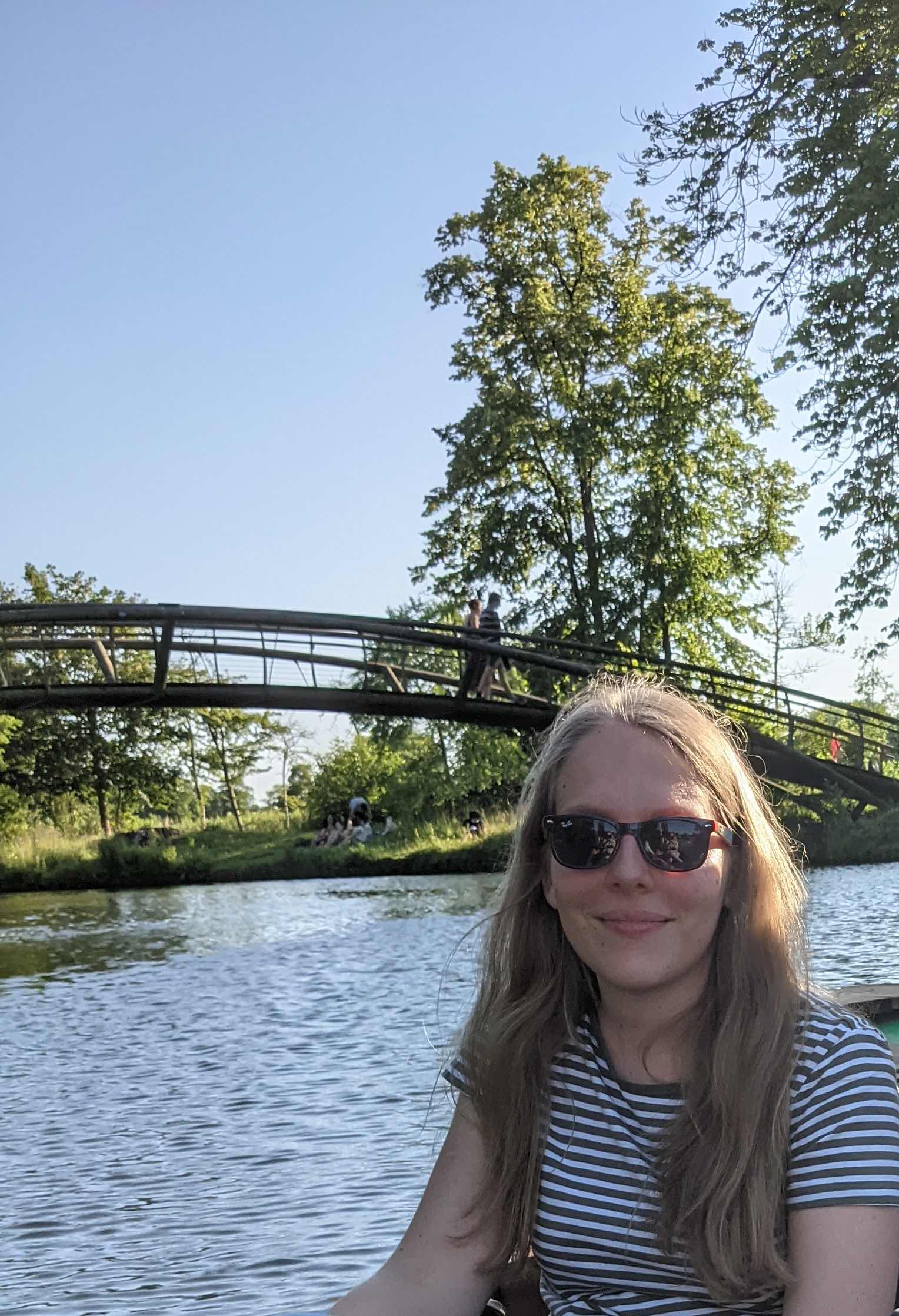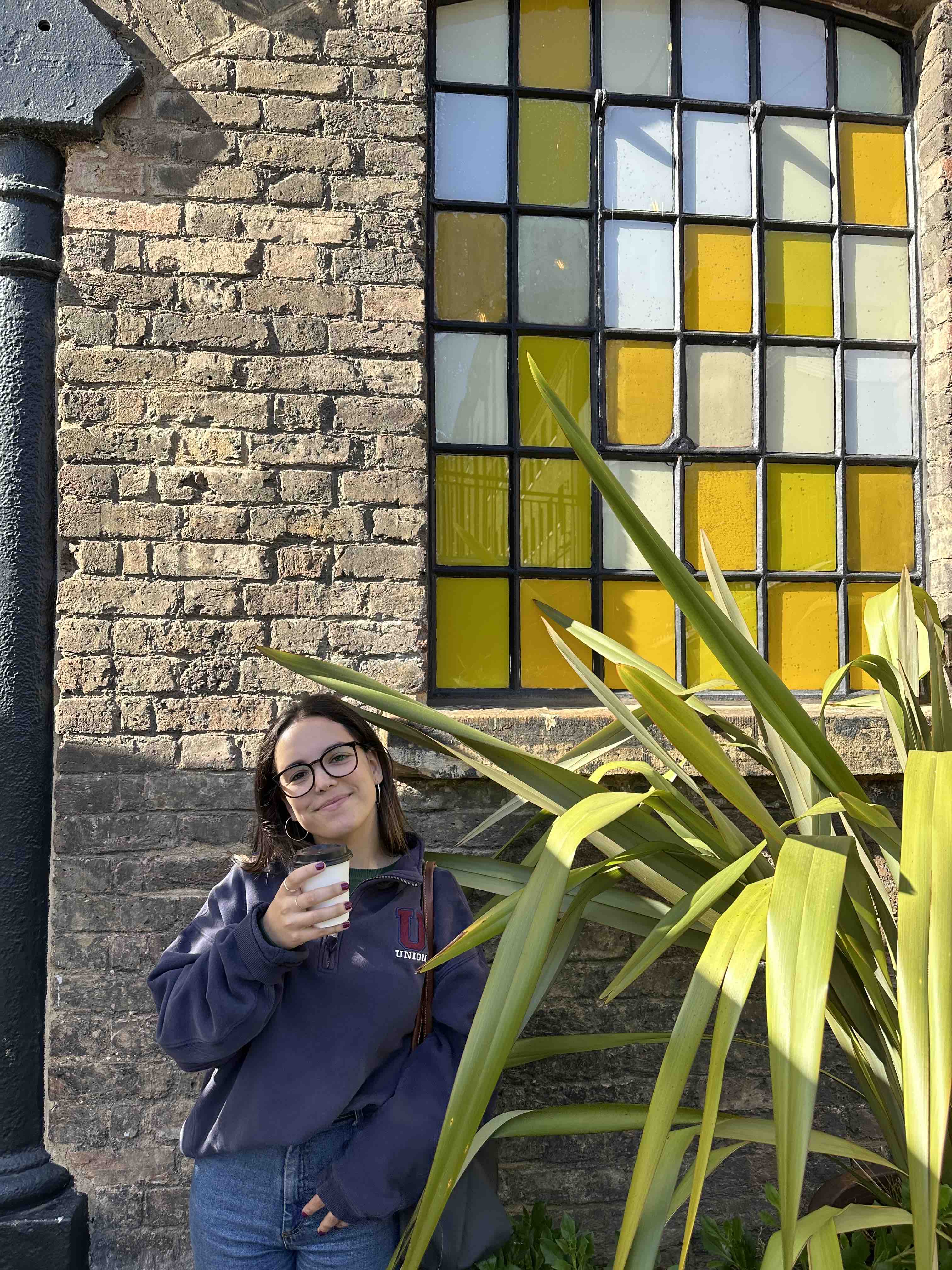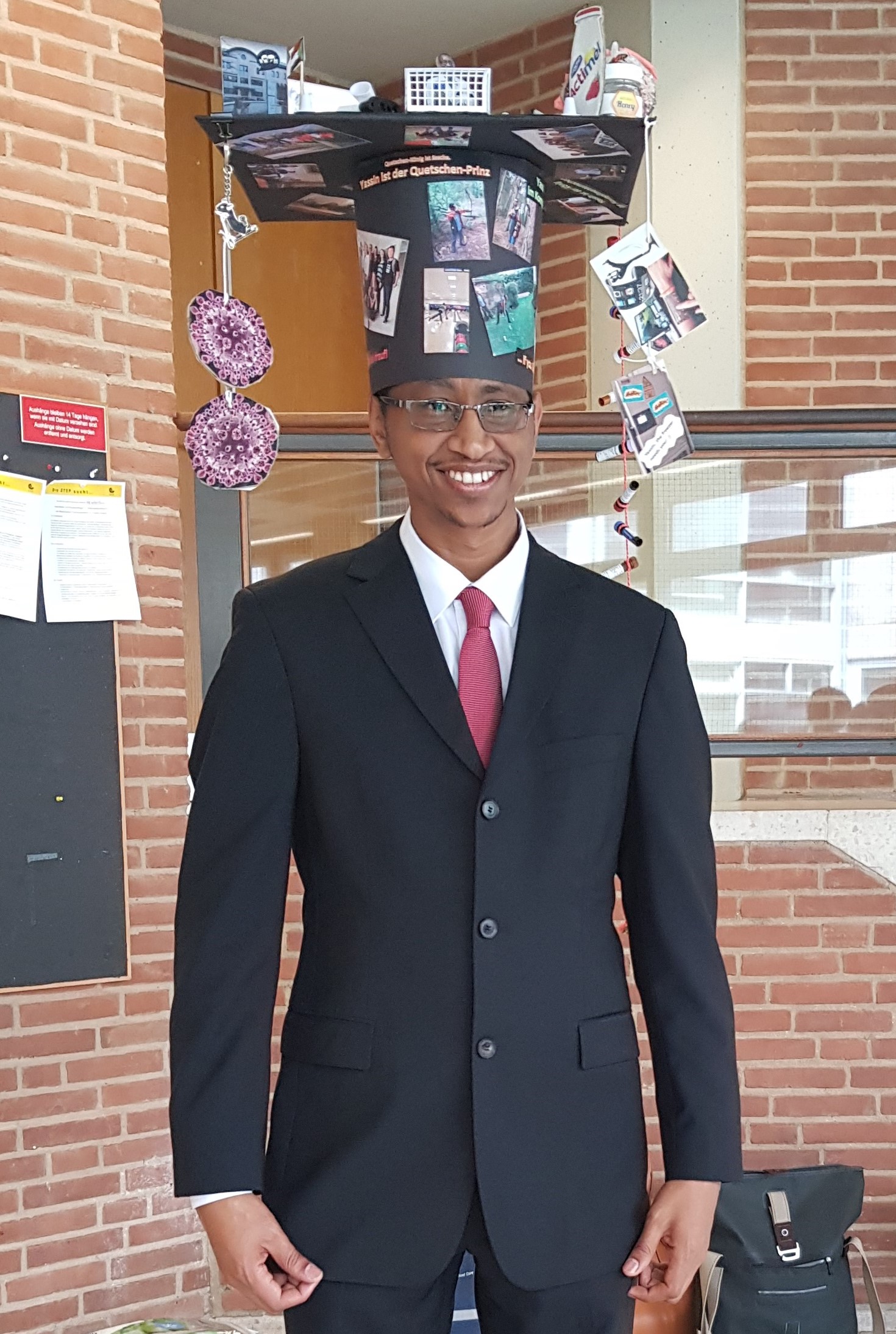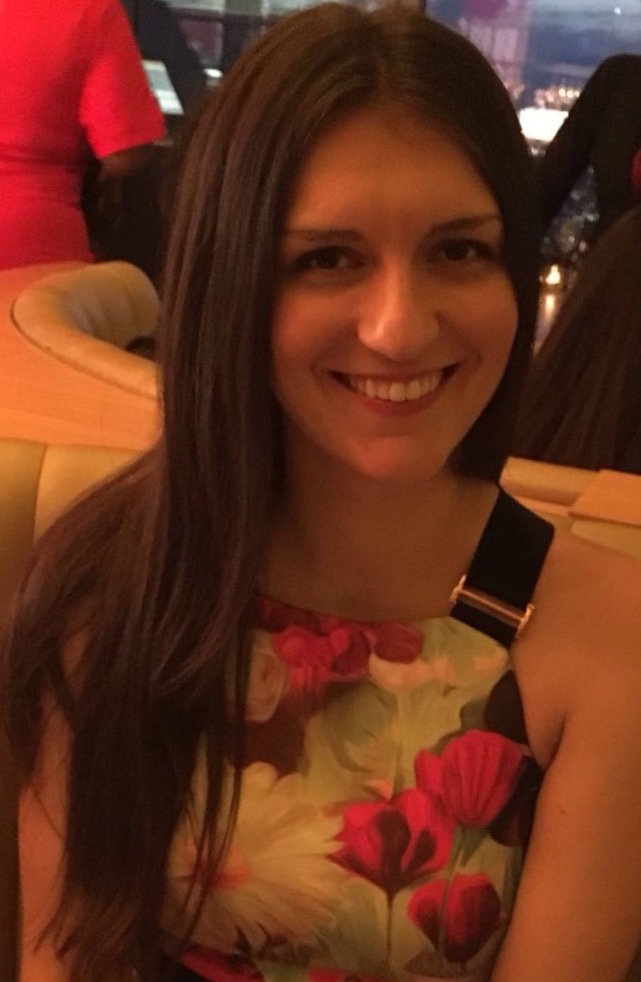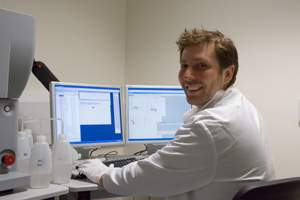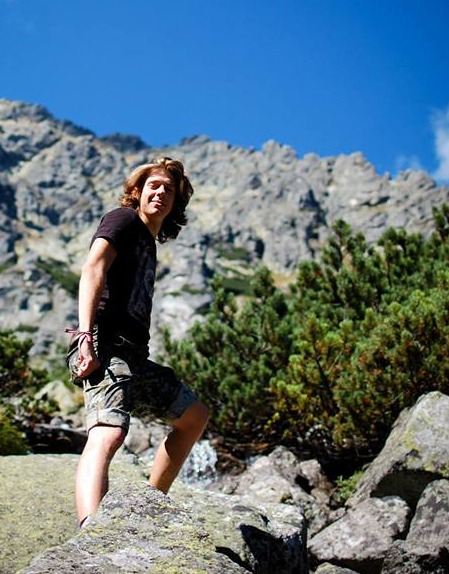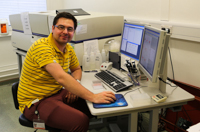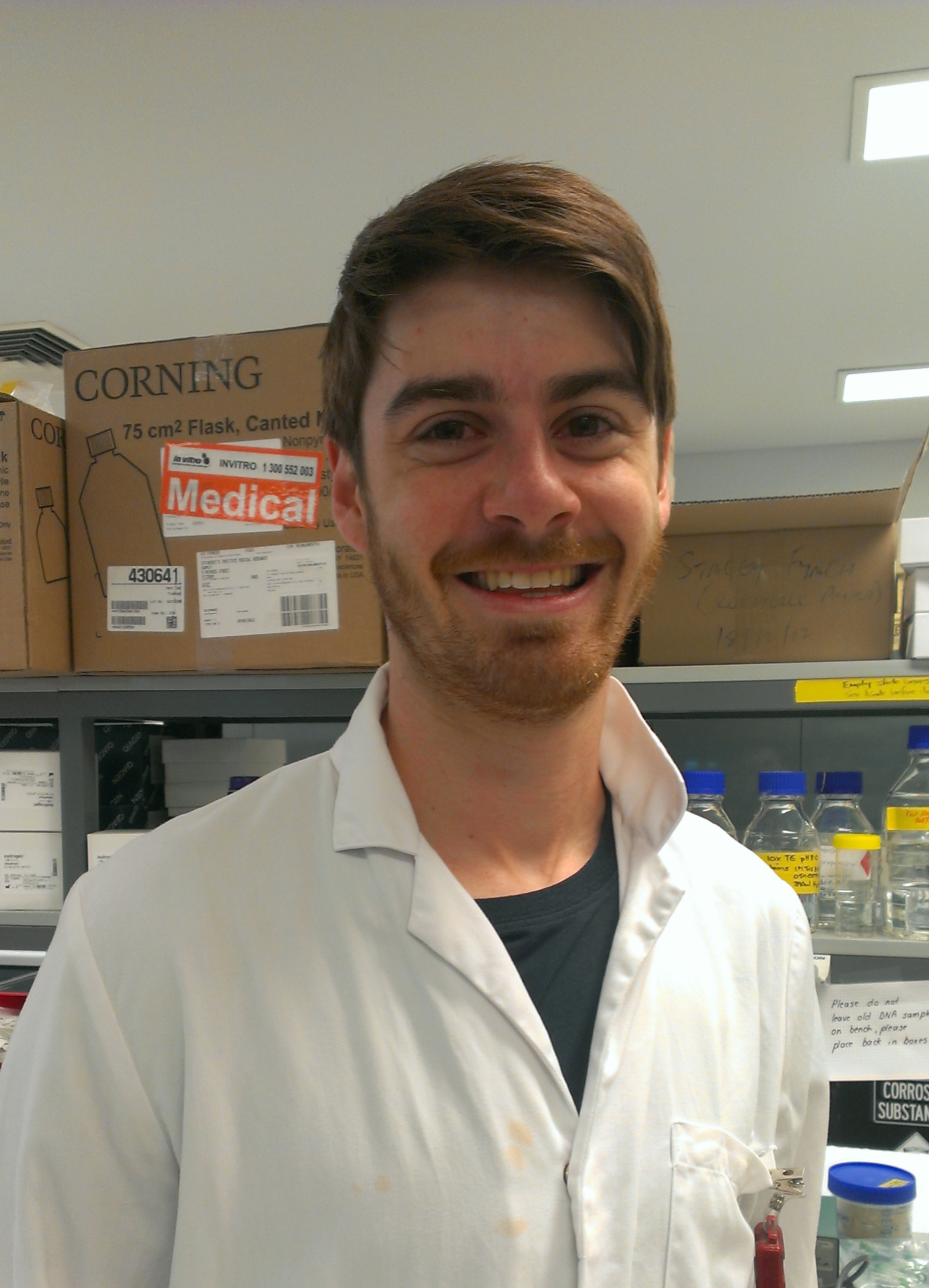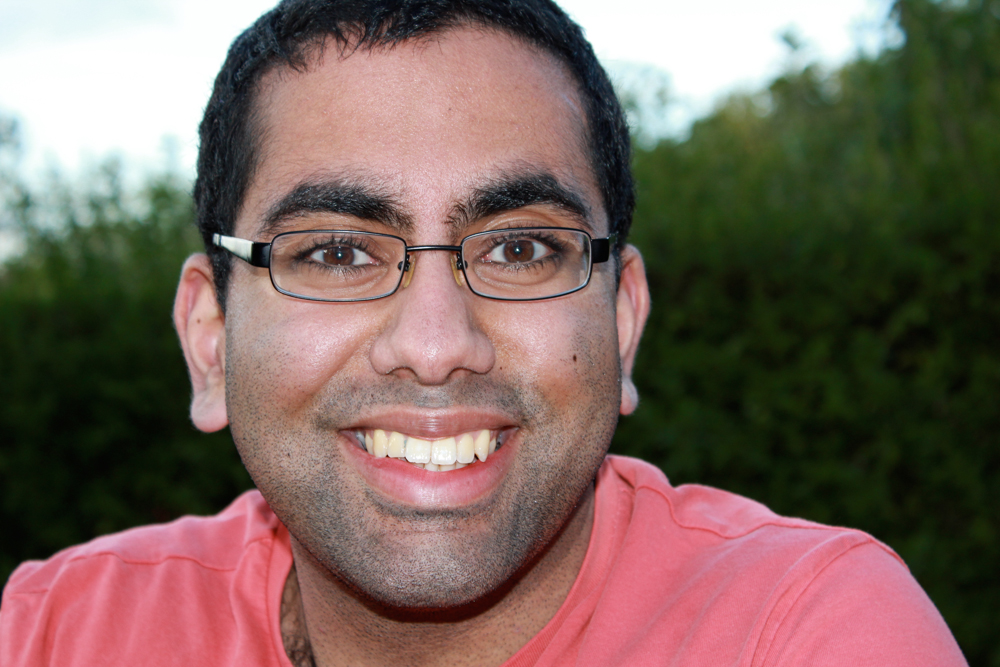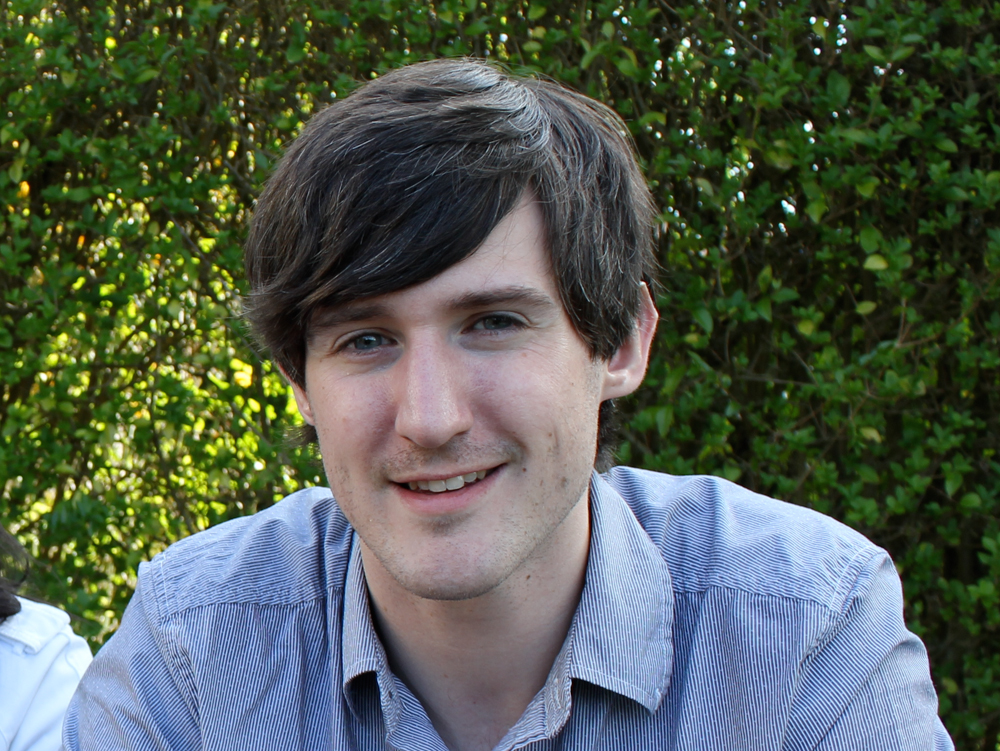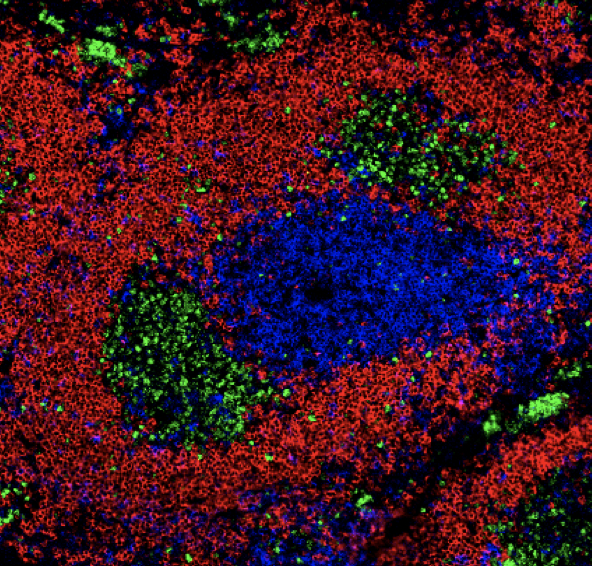-
LAB WEBSITE OF PROF. LUCY WALKER
University College London (UCL)
Institute of Immunity and Transplantation
Royal Free Hospital
Hampstead
London
NW3 2PF
LAB MEMBERS
Current Lab Members
Prof. Lucy Walker - Chair of Immune Regulation - Principle Investigator
I obtained my B.Sc. in Biology from the University of Nottingham and Ph.D. in Immunology from the University of Bath. Following a postdoc with Prof. Peter Lane at the University of Birmingham I obtained a Wellcome Trust International Travelling Prize Fellowship to train with Prof. Abul Abbas at UCSF. During my time in the USA I developed a novel model to study antigen-specific regulatory T cells (Treg) leading to new insights about the generation and homeostasis of this population. Upon my return to the UK I obtained an MRC Career Development Award to set up my own group at the University of Birmingham. During this period I was able to pinpoint how the T cells that cause diabetes are altered by the presence of Treg and to gain new insight into the phenotype and function of Treg in a number of disease settings. In 2009, I was awarded an MRC Senior Fellowship focusing on CD4 T cell differentiation and regulation in autoimmune diabetes. In January 2013, I relocated to the new Institute of Immunity & Transplantation at University College London to become Professor of Immune Regulation. I have served on and chaired numerous national and international funding committees and currently sit on Wellcome Trust Expert Review Group 4 and Chair the NC3Rs Training Fellowship Panel. Lucy Walker Brief CV.
Dr Chunjing Wang - Postdoc
I have been fascinated by the mystery of Medicine since I was a child; I therefore pursued and obtained a Bachelor Degree in Clinical Medicine and a Master Degree in Obstetrics and Gynaecology from Dalian Medical University in China. During the course of my Masters project with Director & Prof. Hong Shi, I established a new model to investigate how morphology score and concentration of a particular oligosaccharide affected the implantation efficiency of embryos. After completing my Masters study in 2004 I had the opportunity to work in Prof. Lucy Walker's lab as a research assistant. During this period I greatly extended my knowledge and mastered various experimental techniques in murine immunology. I have become more and more interested in a distinct immune suppressive T cell population-Regulatory T cells and how these cells control autoimmune disease. In recent years, I started my PhD study in the role of CTLA-4 and CD28 in Treg homeostasis and function.
In my spare time, I enjoy cooking different Asian cuisine. Steamed dumplings and Sushi are my favourites.
Natalie Edner - Postdoc
In high school biology was always my favourite subject and it came as no surprise to anyone when I decided to pursue a Bachelor’s degree in Biotechnology at Wageningen University in the Netherlands. After obtaining my degree it was clear to me that I wanted to continue my career in the field of life and medical sciences. Staying at Wageningen University but steering away from the engineering side of biotechnology I obtained my Master’s degree in biotechnology with a focus on the fields of virology, microbiology and also immunology. In my final project in the Brouns lab I worked on broad-host range phages for the treatment of antibiotic resistant bacteria. My interest in immunology was sparked after a placement in the lab of Janos Filep working on neutrophil activation by TLR9 and I decided to pursue a PhD in this field. A few months later I moved to London and started working in Prof. Lucy Walker’s lab studying the effect of costimulation on Tfh development in the context of autoimmune diabetes. Outside the lab I stay sane by practicing kickboxing and yoga. I also enjoy baking, pumpkin cheesecake being a personal favourite, and I like to explore what London has to offer, preferably avoiding areas filled with tourists.
Lina Petersone - Postdoc
For someone who had always been captivated by life sciences enrolling in a biology programme at the University of Glasgow back in 2010 came as quite a straightforward decision. Three lectures on the intricate workings of the immune system during my first year of undergraduate studies turned out to be enough to make me fall in love with Immunology and to subsequently choose it as my Honours degree. As I progressed through my studies, I decided to pursue an MSci with an industrial placement year rather than a BSc. I carried out my placement with an Immuno-oncology research team at MedImmune in Cambridge were my project focused on characterisation of activated murine immune cells and development of T-cell functionality assays. After this very enjoyable year spent working in full-time research, I returned to Glasgow to complete my undergraduate degree already with a thought of pursuing a PhD in mind. I started the UCL’s PhD programme in Infection, Immunity & Transplantation in 2015, and after three 8-weeks long lab rotations, I have now joined Prof. Lucy Walker’s lab where I am studying the role of IL-21 signalling in immune regulation. When not in the lab, I enjoy spending time outdoors, with long walks in a forest and skiing being my absolute favourites, and also occasionally disappearing for various European city breaks.
Astrid Fabri - PhD Student
Being fascinated by science and biomedical research from childhood, I decided to pursue a research focused pharmacy program at Claude Bernard Université Lyon 1 in France. Prof. Guillaume Monneret’s lectures on the intricate workings of the immune system convinced me to further study Immunology, and I joined his lab to complete my PharmD characterizing immune dysregulation and IL-10 production in sepsis patients. I then enrolled in a MSc program in Translational Immunology and Biotherapies at Sorbonne Université in France. I carried out this Master’s project with Dr Obinna Chijioke at the University of Zurich working on the development of CAR NK cells for cancer cellular immunotherapy. I have now moved to London to join Prof Lucy Walker’s lab and start a PhD. Here, I will be studying tissue infiltration in autoimmunity. In my spare time, I enjoy travelling, across the UK or to other countries whenever I get a chance.
Andrea Rueda Gonzalez - Research Technician
As reminded by my dad recently, as a kid I always used to say to my parents “one day I’m going to cure cancer”, therefore, it wasn’t really a surprise when I decided to move to England to study biomedical sciences at the University of Brighton, and less so that I decided to continue my studies with an Experimental and Translational Immunology MSc at UCL. After carrying my MSc research project at the Walker lab, I knew this was the right place for me to grow as a scientist, and I was extremely lucky to be able to stay and officially join the lab as a research technician, where I support the research capacity of the group and assist in PASINI, a very exciting clinical trial that looks at the autoimmune side effects in cancer patients that are treated with immunotherapy. Outside the lab, as well as baking, I enjoy going out for walks and explore all the special places in London.
Casey Chertavian - Research Technician
I earned my BA in neuroscience from Bowdoin College in Maine, USA, where I discovered my passion for translational research. My fascination with disease mechanisms compelled me to pursue an MSc in neuroscience at University College London. Completing my MSc thesis broadened my view of neurological disease and allowed me a greater appreciation for peripheral biological systems. Initially, I perceived neurological diseases as solely originating from central nervous system (CNS) dysfunction. However, my investigation into lymphocyte infiltration in cerebral small vessel disease during my MSc thesis sparked my interest in immunology as a critical modulator of health and disease. Eager to explore this field, I joined the Walker Lab. Currently, my research focuses on investigating the role of IL-21 in mediating immune infiltration in peripheral organs as well as supporting my college's broader research initiatives. Beyond academia, I find joy in outdoor pursuits such as running, hiking, and skiing.
Previous Lab Members
Peter Szijj - PhD Student
I completed a Natural Sciences MSci degree at UCL specializing in organic chemistry and cell and molecular biology. During my studies I completed various summer research projects in chemical biology (Baker lab, UCL), virology (Towers lab, UCL) and medicinal chemistry (Keseru lab, Hungarian Academy of Sciences). I undertook my Master's project with Prof Vijay Chudasama at UCL working on protein bioconjugation. I then started a Wellcome Trust PhD program at the Institue of Structural and Molecular Biology (ISMB London), undertaking 3-month lab rotations in chemical biology (Chudasama group, UCL), electron microscopy (Moores group, Birkbeck) and molecular dynamics simulations of proteins (Gervasio group, UCL). I then started my 3-year PhD project joint between the labs of Prof Vijay Chudasama and Prof Lucy Walker, where my main project focuses on bispecific antibodies (and their conjugates) for the treatment of Type 1 Diabetes. Outside of science my main interests are all sorts of nerdy stuff (board and video games, fantasy and science fiction), skiing, cycling, history and (Hungarian) politics.
Luke Houghton - Research Technician
The healthy immune system is one which exists in a state of balance. In opposition to this are two extremes; an immune system which mistakes friend for foe and inflicts autoimmune disease upon its fleshy vessel, or an immune system which fails to recognise or respond to the barrage of threats which we regularly face. I distinctly remember learning about how the immune system navigates these threats whilst achieving a state of balance during my Biomedical Science degree and having my imagination captured in a way which no other subject came close to doing. The more I learnt about the immune system, the more questions I had. Whether it was learning about the bizarre orchestra of somatic recombination which is required for specific TCRs and antibodies to be made, or whether it was learning about the wizardry of antigen presentation, my initial studies were littered with “wow” moments. In light of this, I was left with no choice but to study immunology further, and so decided to join the MSc Infection Immunity programme at UCL. The “wow” moments continued to accrue as my understanding increased, and simultaneously my understanding of how little I understood also increased. These two forces together meant that I had a strong compulsion to stay within the field. At UCL, I undertook my MSc project under the supervision of Professor David Sansom, where I learnt about the weird and wonderful mechanism of CTLA-4. Shortly after my MSc, I was fortunate enough to join the Walker Lab as a technician, where I support the research capacity of the group and assist in various experiments.
Outside of science, I am an avid reader (with my favourite book being the Master and Margarita) and keen watcher of artsy-fartsy films.
Hannah Li - Research Technician
I obtained my Integrated Master’s degree in Biology from the University of Oxford in 2022, where I was exposed to the gamut of biological sciences – from plants to animals to microbes. During a series of Infection and Immunity lectures during my 2nd Year, I was captivated by the intricate workings of the immune system and decided to pursue this specialisation further. I undertook my final year Master’s project under the supervision of Prof Adrian Smith, and this involved cloning Toll-like receptors from different turtle species. I also completed a short lab project at St George’s University, London, studying alveolar macrophages. This exposure to the lab environment and the challenge of research convinced me to embark on a PhD, and I have since joined Prof Lucy Walker’s lab in a bid to further understand the mechanisms of T cell regulation by studying the roles of the costimulatory molecules CD80 and CD86. When outside the lab, I am often found on the golf course and dreaming of playing in sunnier climes than that offered in the UK. I most enjoy doing sports, including skiing and tennis, and being outdoors. As for being indoors, I like to explore the excellent food choices and tourist (!) attractions that London has to offer.
Dr Yassin Elfaki - Postdoc
I studied medical laboratory science at Sudan University of Science and Technology (SUST), Khartoum, Sudan, and obtained my BSc degree in 2009 majoring in medical microbiology. From my college years, I learned about the immune system and was immediately fascinated by its complexities and importance for our health. Moreover, I was inspired by our immunology instructor at the time and then my mentor the late Dr. Abdelbagi Nagi. Although my MSc project in SUST wasn’t in immunology, I always thought that I’d continue my career as a researcher in immunology, and particularly autoimmunity. Subsequently, I obtained a PhD scholarship in 2015 from the German Academic Exchange Service (DAAD) to carry out a PhD project in immunology in Prof. Jochen Huehn lab at Helmholtz Centre for Infection Research (HZI) in Braunschweig, Germany. My studies on thymic development of Tregs during viral infection culminated in getting PhD in 2019 form Hannover Medical School (MHH). I joined Prof. Walker lab as a postdoc in 2019 to work on Innate Lymphoid Cells (ILCs) in autoimmune diabetes. In my free time, I like playing and watching football, especially FC Barcelona matches.
Dr Ellen Ross - Postdoc
I obtained my Bachelor of Biomedical Science from the University of Melbourne in Australia. Following this, I received my Honours degree through completion of a project on regulatory T cells in autoimmune gastritis under the supervision of Professor Ian van Driel. I enjoyed the field of autoimmunity, and therefore decided to pursue a PhD within Professor Ian van Driel’s lab, which I was awarded in 2012. I investigated the development of peripheral tolerogenic T cell events to the gastric H+/K+ ATPase and explored the potential to enhance these events in order to treat autoimmune gastritis. I then undertook a postdoctoral position in the Global Biotherapeutics department of Sanofi Research and Development in Paris. My work here aimed to find small molecule compounds capable of altering the function of dendritic cells in the context of cancer immunotherapy. I was supervised by Doctor Benoit Pasquier and was able to maintain ties with academia by working collaboratively with Doctor Sebastian Amigorena at the Institut Curie. I have recently joined Professor Lucy Walker’s team where I am beginning to work on a project aiming to decipher the distinct roles of the two costimulatory ligands CD80 and CD86 in controlling T cell activation and tolerance.
Elisavet Ntavli - Research Technician
I received my first Degree in Biology from Aristotle University of Thessaloniki, Greece where I developed a strong interest in Immunology. I therefore followed postgraduate studies in Immunology (MSc) at Imperial College London where I worked in the lab of Dr Mohamed Shamji on a novel project investigating the role of Group 2 Innate Lymphoid Cells (ILC2s) in peanut allergy. Having completed my MSc research project, I was selected to present an abstract at the 2016 AAAAI Annual Meeting in Los Angeles, CA, USA, also published in the Journal of Allergy and Clinical Immunology. I therefore undertook a short term research role persisting in studying the role of ILC2s in peanut allergy and a just few months later I joined the lab of Prof Lucy Walker. Here I try to address the gap between cancer patients who develop autoimmune side effects upon immunotherapy and those who do not, with a view to identifying potential markers that will enable us predict who will exhibit a good clinical response after treatment. When leaving the lab behind I mostly enjoy shopping, cooking or cycling.
Dr Frank Heuts - Postdoc
Being interested in biology from childhood I made my first steps into science by starting my BSc studies in biomedical sciences at Utrecht University. Throughout these studies I developed a strong preference for immunology and infectious diseases so the choice for MSc studies in Immunity and Infection was an obvious one. A big part of these studies involved work on coronaviruses in the lab of Prof. Peter Rottier in Utrecht as well as work on signal transduction in immune cells in the lab of Dr. Margaret Hibbs in Melbourne, Australia. After successfully completing my MSc studies I used my interest in technology to explore what a position in a profit driven environment involved by taking on a position in a small IT and multimedia start up in the south of the Netherlands. Although this was a valuable experience, the call of science was too strong and I started my PhD in the lab of Prof. Martin Rottenberg at the Karolinska Institute in Stockholm, Sweden. Here I set up a humanized mouse model and used this model for an array of studies ranging from infections with mycobacteria and Epstein Barr Virus to work on NK cell differentiation and transplant rejection. As I found the combination of a very experimental model, which at the same time carried clinical relevance very stimulating, I was happy to join Prof. Lucy Walker's lab as a postdoc to continue my career whilst making a contribution to understanding diabetes.
When leaving the lab behind I like to explore the outdoors either on foot or a bicycle, when possible equipped with my camera. Indoors I'm happy spending a good bit of time in the kitchen to explore my own culinary skills (with various rates of success).
Dr Rupert Kenefeck - Postdoc
I gained my degree in Medical Microbiology and Immunology from the University of Newcastle where I undertook a project with Prof. Colin Brooks on the NK cell receptor Ly49E. The exceptional seminars of Prof. Brooks sparked my fascination for T-cell immunology and immune regulation and from there I went on to complete my PhD in the lab of Dr Karen Robinson at the University of Nottingham. During my project I investigated the induction of regulatory T-cells by the bacterium Helicobacter pylori and its impact on gastric disease pathology. While writing up my PhD I became interested in science communication and began work with a new Nottingham-based franchise of Mad Science; lead by Mr Jonathon Longfellow (an ex-bomb disposal expert) we took fundamental scientific concepts into primary schools with great success. I knew at this point however that scientific research was my calling and so sought a postdoctoral research project in Prof. Lucy Walker's lab. The blend of fundamental immunology with the ability to set up a patient-based autoimmune research project had me hooked. I have been in Prof. Walker’s lab for almost four years now and together we have made great inroads in the area of autoimmune diabetes. My ambition is to pursue a career in the autoimmune diabetes field and contribute to the cure of this debilitating disease.
In the little spare time I have outside of the lab I have many interests including cycling, photography, coffee, baking and tinkering with cars when I get the chance. More about those at www.rupertkenefeck.com
Vitalijs Ovcinnikovs - PhD Student
Biology is cool. Those were the thoughts of a naïve undergraduate fresher in the year 2009, just before packing the bags to leave his small home country and fly off into the unknown. Couple of years and one industrial placement at Lonza Biologics later general biology turned into immunology and became 'pretty awesome' rather than the previous 'cool'. It eventually developed into a fully-fledged interest in immune regulation and tolerance. Afterwards I was on a solid track for a scientific career receiving a 1st class BSc in Biotechnology from the University of Manchester. With that came an award for the best final year project in the faculty supervised by Dr Rebecca Dearman, working on Aryl Hydrocarbon Receptor in IL-17 producing CD8 T cells. Two months later I found myself where I am now, at University College London doing a PhD in the lab of Prof Lucy Walker. Here I try to understand how regulatory T cell use CTLA-4 to alter the ability of antigen presenting cells to activate conventional T cell and thus can prevent the onset of autoimmunity in mice.
In my free time you cannot find me, I hope, because I'm away in some forest or up on a mountain. I enjoy hiking and skiing and recently picked up rock climbing to expand the range of things I can do outside. Outdoors is my passion and really highlights the irony of moving to London!?
Lukasz Wardinski - PhD Student (2009 - 2012). Research Assistant (2012 - 2013)
I hold a degree in Biomedical Sciences from the University of the West of England. During my undergraduate studies I also undertook an industrial placement at GlaxoSmithKline, where I was involved in pre-clinical safety studies and target validation for a number of pharmaceuticals. This experience sparked my interest in the role of CD4 T cells in autoimmunity. I therefore welcomed the opportunity to work in the laboratory of Prof. Lucy Walker and started my PhD training in 2009. My research project focused on evaluating CD4 T cells and identifying signals that are required for their diabetogenic phenotype.
In my spare time I am a keen skier and cyclist. I also like to keep abreast of financial and economic issues.
Alexandros Kogimtzis - Senior Research Assistant
After graduating from high school I continued my education by starting a Human Biology BSc course in Oxford Brookes University. A subsequent postgraduate course, focused on Molecular Biology, was even more enjoyable. After my MSc studies, I had to move back to Greece in order to fulfill my national service duties. At the end of my service, I was determined to carry on and expand my laboratory research experience; I worked as a Molecular Biology Analyst in a GMOs screening laboratory followed by an R&D Scientist’s position in a stem cell biotechnology company. After my last job in the field of mammalian biopharmaceuticals, where I was developing expression vectors and stable cell lines for therapeutic antibody production, I am back in academia in Professor Lucy Walker’s lab, ready to explore the creative and purposeful interaction between basic and clinical research in Immunology. In my free time I have many hobbies among which are analog photography and exploring the very best of the Greek islands.
Nick Scott - Lab Technician (2011 - 2012)
Nick obtained his degree at the University of Melbourne, majoring in Genetics and Biochemistry. After picking up an English girl, he relocated to the UK in 2011. It is at this time that he started working in Prof. Lucy Walker's lab as a technician, where he studied the role of a T cell marker, ICOS, in DO11 OVA mouse models of type 1 diabetes while collaborating with an American biotech, Medimmune LLC.
Near the end of 2012 he left the lab to relocate back to Melbourne and, having thoroughly enjoyed the experience of working on diabetes in the Walker lab, began a PhD with A/Prof. Helen Thomas and Prof. Tom Kay, at St Vincent's Institute of Medical Research at the University of Melbourne. He is currently studying mechanisms of CD4+ T cell mediated destruction of beta cells.
When not in the lab Nick enjoys drinking fine beer (bitters, ales and definitely lager), playing lacrosse, and telling you how fantastic Melbourne and Australia are.
Dr Emily Schmidt - PhD Student (2006 - 2010)
Throughout my school years I always hoped to become a 'scientist' (like my dad), but was never really sure which area appealed to me most. I was attracted to working in immunology-based research during an industrial placement year at GSK in Stevenage as part of my undergraduate Biochemistry degree. I really enjoyed this year; learning how to use a pipette and moving between ml and ?l in my head (which I found so confusing during undergraduate lab practicals!). It also showed me that I would like to undertake a PhD as part of my 'career'. After graduating from the University of Bath in 2006 I started my PhD in the Walker lab at the University of Birmingham. I was particularly interested in carrying out my PhD in Lucy's group due to her mouse model of diabetes which could be used to great effect to study regulatory T cells, which were then a relatively 'new' cell type to be working on. To develop the knowledge and skills that I acquired during my PhD, and also learn new techniques and expertise, I next undertook post-doctoral research investigating rheumatoid arthritis using human tissue samples (still mostly T cell-based). This was under the guidance of Fionula Brennan and Marc Feldmann at the Kennedy Institute of Rheumatology (Imperial College London/University of Oxford). After five years as a post-doc, I am now about to leave academic research and take up a new position at Adaptimmune; a biotech focused on the use of T-cell therapy to treat cancer and infectious disease. Outside the lab I enjoy the challenge of running long, long distances, which helps keep me sane when science is being particularly frustrating and testing my patience.
Dr Tauseef Kapadi - Medical Summer Student
After four years of my medical degree, and having always been inspired by the difference we can make to people's lives through basic science research, I decided to take a year out for an intercalated biomedical science degree. I chose to join Prof. Lucy Walker's lab because they had a strong background in models of autoimmune diabetes and were applying their findings to diabetic patients. I was able to attend diabetes clinics at the Queen Elizabeth Hospital Birmingham to speak to patients about our work and return to the lab later in the day to work on our patient samples. This truly was from bench-to-bedside and back to the bench!
I gained a first in my biomedical science degree and went on to complete my medical degree in 2012. I am currently working as a foundation doctor in geriatric medicine in Birmingham and am due to start a rotation in histopathology in August – this is something that I am looking to pursue as a career with a view to continuing laboratory research in the future.
In my spare time I'm a keen cook with a particular passion for baking. I also enjoy trying different cuisines with the kebab being a personal favourite.

